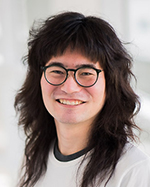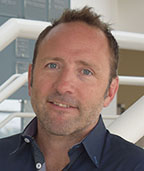Assistant Professor
Studying the structure-function relationship between collagen and its biosynthetic molecules
Yoshihiro Ishikawa, Ph.D. has studied how collagens are produced in the endoplasmic reticulum (ER) for over 15 years. Using diverse approaches, including biochemical, biophysical, and structural analysis and animal models, I have contributed significantly to the fundamental understanding of how collagen biosynthesis is orchestrated. He has functionally characterized over ten collagen-related biosynthetic molecules, including rER chaperones and enzymes required for posttranslational modifications. Furthermore, his in vitro studies identified unique patterns in collagen posttranslational modifications in different collagen types and specific molecular interactions between rER proteins, collagens, and other extracellular matrix proteins. While many studies on type IV collagen and its mutations using cell biology and model organisms have been reported, it’s still challenging to investigate the details of type IV collagen molecules with biochemical and biophysical approaches. To fill this important gap in our knowledge, he is uniquely qualified to conduct type IV collagen biochemistry and biophysics at UCSF.
To Learn More:
https://profiles.ucsf.edu/yoshihiro.ishikawa
Research Areas:
Gene Research, Retina or Retinal Diseases, Protein Folding and Quality Control
Learn more about UCSF Ophthalmology faculty research.




